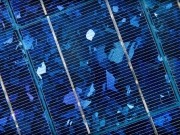
The ruling means that ‘anti-dumping’ tariffs can now go ahead. In making their decision, the ITC took the view that Chinese solar imports had indeed hurt US solar manufacturers. The US has reacted to Chinese imports by imposing tariffs that offset the subsidies given to Chinese manufacturers by the Chinese government. The ITC said that the imposition of such tariffs would help to restore a level playing field for all players in the solar market.
Reacting to the decision, Gordon Brinser, the President of the Coalition of American Solar Manufacturing (CASM) said:
“Today's unanimous vote by the International Trade Commission confirms what has been apparent in the marketplace for the past two years – Chinese manufacturers, with the enthusiastic support of the Chinese government, have attempted to game the international trading system in order to gain a virtual monopoly on solar cells and modules sales in the U.S. market.
We have seen the results of this campaign in the marketplace, with more than a dozen companies either shutting down manufacturing facilities or significantly cutting back production and employment in the United States and a Chinese industry, led by LDK Solar and Suntech, having to increasingly turn to its national and provincial governments for help to survive.
With this relief, combined with an aggressive domestic enforcement regime, there is hope that the United States can maintain a viable solar manufacturing base, conduct ongoing research and development and continue to make solar an increasingly viable part of the American renewable energy portfolio. On behalf of the membership of CASM, I want to thank the commissioners and the ITC staff for the hard work on this case.”
The Coalition for American Solar Manufacturing, founded by seven companies that manufacture solar cells and panels in the United States, has about 225 employers of about 18,000 workers who have registered their support for CASM's case.
The founding manufacturers have plants in nearly every region in the United States, including the Northwest and California, the Southwest, Midwest, Northeast and South and support several thousand U.S. manufacturing jobs.
The tariffs will be levied at various rates from just over 18% to nearly 250%, depending on the manufacturer, and apply to certain types of Chinese-made solar cell.
Critics have however suggested that the tariffs would actually make solar PV more expensive for customers.
“Unilateral tariffs and a trade war in today's interconnected global marketplace are unnecessary and detrimental to effective and efficient business competition,” said Jigar Shah, President of the Coalition for Affordable Solar Energy.
Nevertheless, it is not just the US that has grown concerned about so-called ‘solar dumping’ by the Chinese. The EU has also investigated the matter. The Chinese have reacted angrily, sparking fears of a trade war amid a Chinese complaint to the World Trade Organisation.
Further information:

